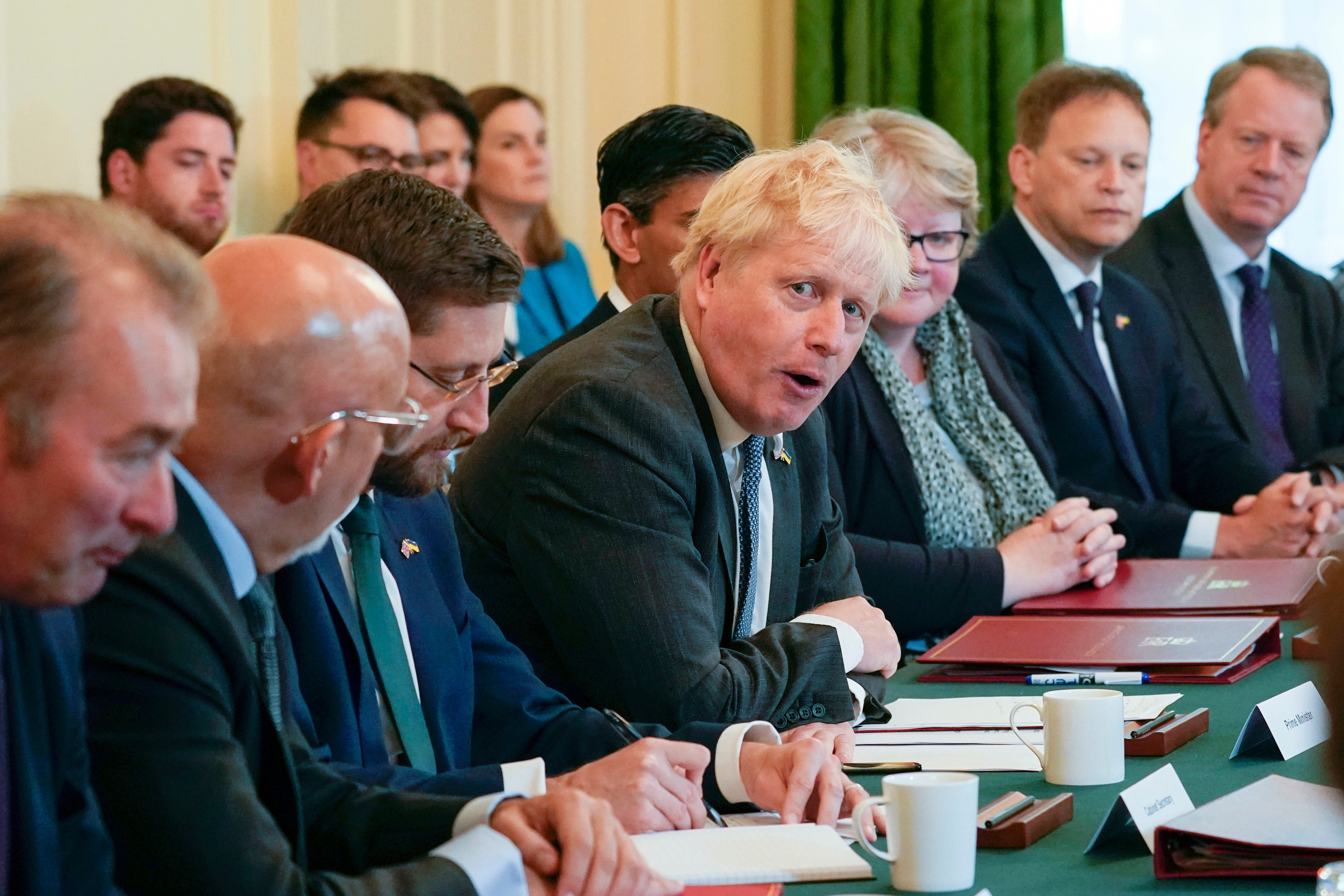Boris Johnson now wants a diplomatic war with Europe on human rights – it won’t end well
Though the Tories might get a short-term boost, this discredited policy will prove an expensive failure and might disrupt Northern Ireland


“I love lawyers, many of you around this table are lawyers,” Boris Johnson told his cabinet yesterday, before attacking the lawyers he claimed were effectively “abetting the work of the criminal gangs” who send migrants across the English Channel in small boats.
He issued a coded rebuke to Prince Charles, who reportedly described as “appalling” the government’s controversial plan to send asylum-seekers 4,000 miles to Rwanda, saying some criticism came “from slightly unexpected quarters”.
Today the government is ploughing ahead with the scheme despite a late-night intervention by the European Court of Human Rights (ECHR), which stopped the first flight carrying asylum seekers from taking off to Rwanda, a country with a questionable record on human and gay rights. Originally, 130 were due to be on the plane, but the number dropped steadily through the legal challenges that Johnson and Priti Patel knew were inevitable, until it finally fell to zero.
It’s farcical, incompetent, another waste of money (at least £250,000) and deeply embarrassing for a government that cannot live up to its rhetoric about taking back control of the UK’s borders. And yet Johnson will not be as angry as we might think.
He will not mind a public dispute on this issue with judges – especially “European” ones, even though the ECHR is separate from the EU – leftie lawyers, bishops (who described the plan as “immoral”), Labour in general, Keir Starmer in particular, and the Liberal Democrats.
This is just the sort of divisive or “wedge” issue that David Canzini, Johnson’s hardline deputy chief of staff, wants him to pursue. The hope is to put Labour on the defensive and that talking tough on immigration will bolster Johnson’s faltering support among Tory MPs and 2019 Tory voters. Tory MPs representing seats in the red wall say their voters are clamouring for “something to be done” about people arriving in small boats. Although public opinion is divided, the Rwanda policy is supported by 74 per cent of Tory voters (and 68 per cent of Leavers) and opposed by 71 per cent of Labour supporters (and 64 per cent of Remainers).
Tory backbenchers are less relaxed than Johnson about last night’s ECHR ruling. They are livid, and demand the UK pulls out of the European Convention on Human Rights – enforced by the court – that it helped to draft after the Second World War. Johnson saw this coming, saying yesterday it “might very well be” necessary to “change some laws” to uphold the policy.
He should resist the temptation to leave the convention, a move which would further tarnish Global Britain’s reputation. That was already damaged enough by the widespread view it is breaching international law by bringing in a bill to override the Northern Ireland protocol. (The government was quite happy to shop around for lawyers who would tell it what it wanted to hear to the contrary).
Ministers should restrict any changes they want to make to reforming the UK’s Human Rights Act on how it interprets the convention. In practice, that appears more likely. Pulling out of the convention would further complicate EU relations; the UK’s trade deal with Brussels says the EU could withdraw cooperation on policing and judicial matters if the UK does not adhere to the convention. And the 1998 Good Friday Agreement, which the government purports to be safeguarding, says the convention must apply in Northern Ireland.
The Rwanda policy is a deliberate distraction from the government’s abject failure to tackle the small boats crisis the scheme is supposed to address. It is “do something” politics taken to its extreme. But it is not doing the right thing on either a practical or moral basis. When migrants have already risked their lives getting to northern France and are ready to do so in the Channel, would being sent to Rwanda really be a deterrent?
To keep up to speed with all the latest opinions and comment, sign up to our free weekly Voices Dispatches newsletter by clicking here
It’s a symbolic rather than real policy. Johnson initially spoke of “tens of thousands” of asylum seekers being sent to Rwanda, but Home Office modelling suggests less than 200 will go this year. Contrast that with the 440 who arrived on small boats yesterday alone, and the 10,000 so far this year. The number is on course to exceed last year’s 28,000 and could even double to 60,000.
The only way to stop it is by reaching agreements with France (on more effective action against the gangs) and the EU (to allow safe returns and family reunions). Yet the government’s provocative act on the protocol will make those relationships even more strained and vital cooperation an even more remote prospect.
Although Johnson and the Tories might achieve their real purpose by getting a short-term boost, this discredited policy will prove an expensive failure. Ministers are very coy about the cost; the £120m to be paid to Rwanda is only the start, and it could run to billions. I doubt most voters will be impressed by that.
The real test for the policy over time is whether it reduces the number of Channel crossings. It won’t.
Join our commenting forum
Join thought-provoking conversations, follow other Independent readers and see their replies
Comments